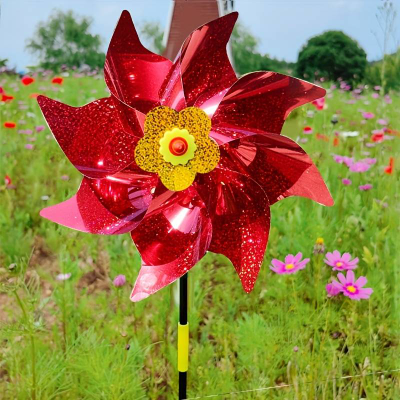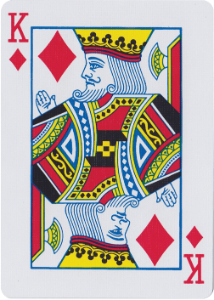9.2 Rotational Symmetry
Rotational symmetry is all about turning shapes around a pivot point.
Imagine you have a little windmill placed in the garden. If the mill is spinning around its center you might notice something interesting. After it was rotated, the shape looks exactly the same as it did before it was spinned by the wind.

This idea of turning a shape and having it look the same is what we call rotational symmetry. The point around which you turn the figure is called the pivot point or the center of rotation.
When we try the calculate the smallest angle of rotation, we're trying to find the smallest angle that we can turn the shape so that it looks exactly the same as it did before. To do this, we need to think about how many times we can turn the shape before it repeats itself.
You can find the smallest number of degrees over which you can turn the windmill as follows:
- turning a full circle is
- the windmill will turn a full circle in 8 steps
- per step it is .
- Therefore the smallest angle of rotation is
| Line symmetry ____________________________________ | Rotational symmetry __________________________________________ | Point symmetry __________________________________________ |
| You fold figures that have line symmetry over a line | You turn figures that have rotational symmetry around a point | You turn figures that have rotational symmetry around a point with an angle of rotation of 180 |
